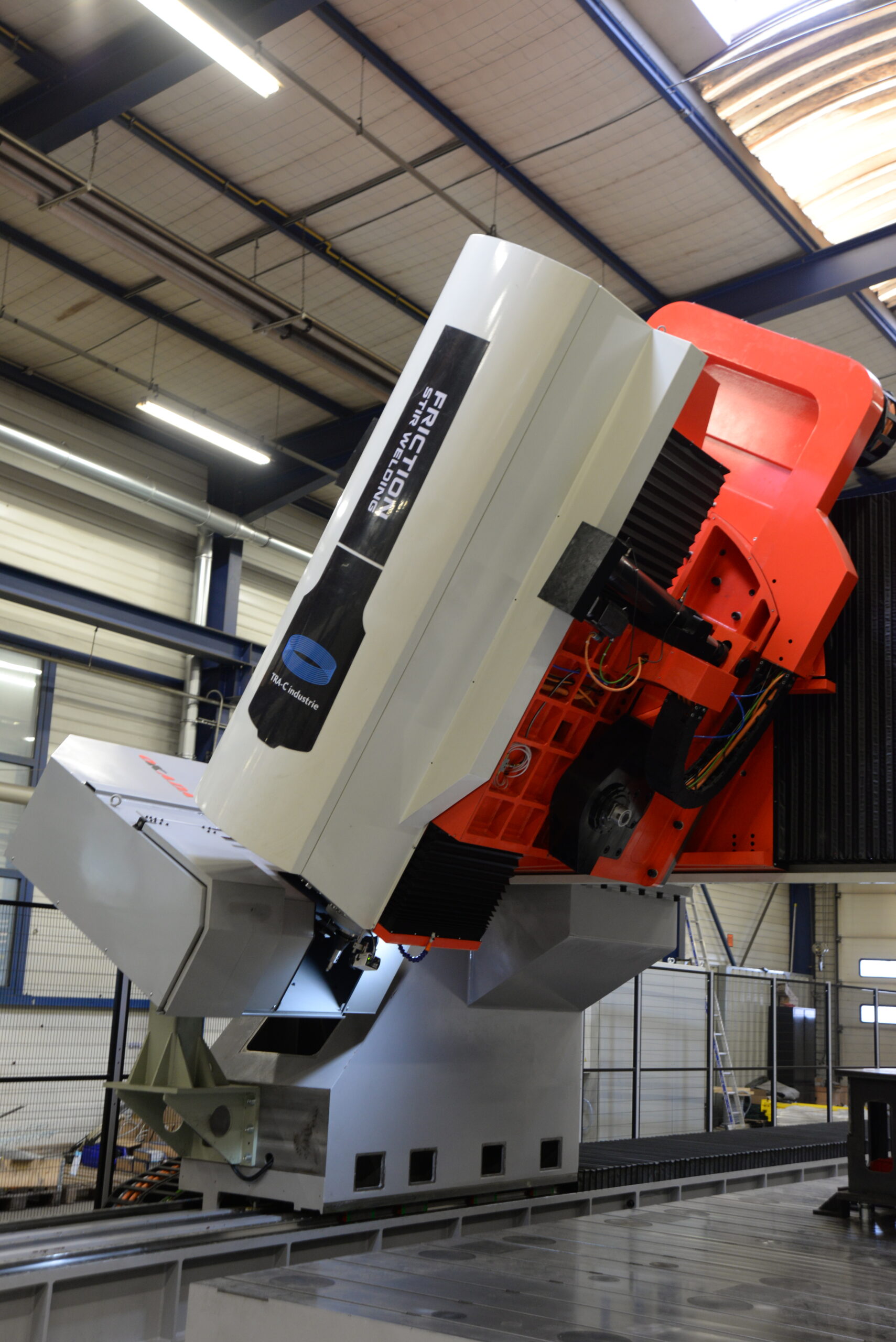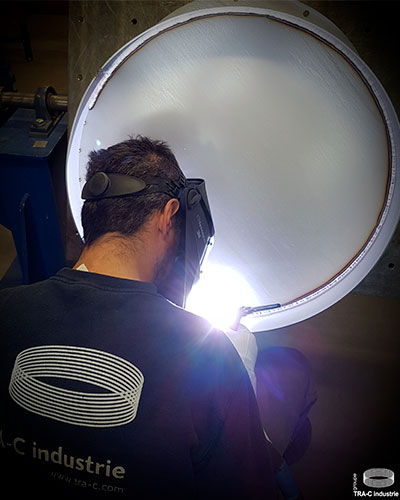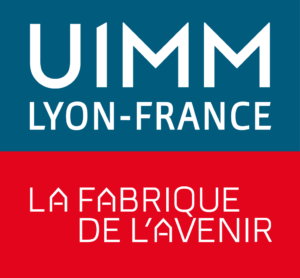EN 1090-1 standard: joining steel and aluminum structures
The EN 1090-1 standard is an essential reference for the assembly of steel and aluminum structures. It defines the requirements for the manufacture and CE marking of these elements. It thus guarantees their compliance with European standards.
Adopted by many companies in the sector, this certification applies to all types of steel structures. Its main objective is to ensure the quality and safety of all structures, from buildings to bridges!
Manufacturers and installers must comply strictly with the performance and manufacturing criteria specified in the standard. This includes rigorous checks on materials, welds and manufacturing processes.
But what exactly is EN 1090-1 certification? What are the advantages for companies? And how do you get certified? TRA-C industrie tells you more about the challenges and applications of this standard in the welding industry…

What are the challenges facing the metal construction sector?
The steel construction sector is facing major challenges in terms of quality, safety and durability of its structures. Today’s companies face a number of challenges:
- Structural safety: first and foremost, they must guarantee solid, reliable assemblies to prevent the risk of accidents and ensure the safety of users;
- Compliance with standards: legislation such as EN 1090-1 must also be complied with. This is essential to access European markets;
- Durability of materials: sustainable materials and techniques are also essential. The aim is to reduce the ecological footprint and extend the lifespan of structures;
- Innovation and competitiveness: integrating technological innovations enables companies to remain competitive and meet the specific needs of complex projects.
What is EN 1090-1 standard?
EN 1090-1 standard is a European certification for the manufacture of steel and aluminum structures. It sets out the requirements for factory production control and CE marking, guaranteeing the quality and safety of structures.
In force since 2014, this accreditation is essential for any company involved in the manufacture or assembly of steel structures in Europe. It covers elements such as buildings, bridges and pylons, with strict compliance criteria.
EN 1090-1 certification imposes checks on materials used, welding processes and quality controls. To comply, companies must either set up an in-house control system or use the services of a certified body.
In short, EN 1090-1 regulation aims to standardize quality standards for steel structures throughout Europe. By complying with its requirements, manufacturers and installers can guarantee the reliability and durability of their structures…


What are the requirements for EN 1090-1 certification?
The EN 1090-1 standard imposes strict requirements on manufacturers of steel structures to ensure their compliance with European specifications. Among the main criteria to be met are the following:
- Production control: implementation of a factory production control system (CPF) to guarantee the quality of manufacturing processes;
- Personnel qualification: training and qualification of welders and operators in accordance with applicable European standards;
- Materials control: verification and traceability of materials used to ensure their quality and compliance with requirements;
- Welding procedures: implementation of certified welding procedures to guarantee robust, long-lasting assemblies.
- CE marking: products must bear the CE mark, attesting to their compliance with European standards.
What are the benefits of EN 1090-1 standard for companies?
The EN 1090-1 standard offers significant advantages for steel construction companies. It enables them to position themselves on the European market. Thanks to the required CE marking, they can sell their products without regulatory barriers throughout the EU…
This certification also enhances product quality by imposing rigorous controls at every stage of the manufacturing process. Companies can thus reinforce their reputation as a guarantee of reliability and high standards in the eyes of their customers.
By standardizing processes, EN 1090-1 certification reduces the risk of manufacturing errors and failures, thus minimizing the costs associated with repairs or accidents. As a result, productivity is optimized and financial losses are avoided!
Lastly, this European standard enhances a company’s brand image by attesting to its reliability and compliance with safety standards. Certification reinforces the confidence of customers and partners, an essential asset in a highly competitive sector.


Which sectors are covered by the EN 1090-1 certification?
The EN 1090-1 standard applies firstly to the construction industry, and in particular to structural steelwork. Residential and industrial construction companies must comply with it to guarantee the strength and safety of their structures…
In the field of civil engineering and infrastructure, certification is essential for structures such as bridges, tunnels and footbridges. These structures require high material resistance to ensure the safety of everyday users.
The energy sector, particularly that of renewable energies, is also concerned, especially for wind turbine masts and supports. Regulations guarantee the stability and durability of these essential structures for energy production!
Finally, directive 1090-1 applies to the transport and logistics sector, in facilities such as railroads, warehouses and hangars. Compliance of these structures is essential to support the safe flow of goods.
How to be certified EN 1090-1?
Obtaining the EN 1090-1 standard requires a structured approach, including several key stages. Here’s how to become certified:
- Assessing the company’s needs: companies must first analyze the standard’s requirements in relation to the products they manufacture. This will enable them to adapt their production processes to EN 1090-1 standards;
- Set up factory production control (FPC): they must then set up a rigorous quality control system to check every stage of the manufacturing process;
- Training and qualifying personnel: we also need to ensure that welders, operators and quality managers are qualified and certified to the relevant standards, guaranteeing adequate skills;
- Document manufacturing procedures: companies formalize work methods, quality controls and welding processes. They draw up technical documentation to provide evidence for the certification audit;
- Passing the certification audit: finally, a certified body carries out the final audit and issues a declaration of conformity to the company if it complies with European directives.

Subcontract projects to a certified EN 1090-1 standard expert
Calling on a professional certified to EN 1090-1 standard insures that every stage of the process complies with European standards. It is a guarantee of quality, conformity and safety.
A specialist in friction stir welding, TRA-C industrie is also an expert in the assembly of steel and aluminum structures, certified EN 1090-1. Our expertise enables us to meet the sector’s most stringent requirements.
Thanks to our in-depth knowledge of manufacturing and welding techniques, we are able to produce safe, durable assemblies. Our qualified staff, trained in EN 1090-1 standards, apply best practices, reducing lead times while ensuring consistent quality.
Entrusting your projects to TRA-C industrie, it’s benefiting from recognized expertise and services tailored to your specific requirements. We carry out projects that comply with European standards and are tailored to our customers’ needs!









